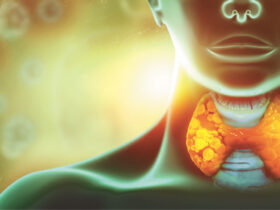By Timothy Blend, M.D. –
 Do you ever wake feeling like you don’t want to get out of bed. You wonder if you could just get one more hour of sleep would it make a difference? Yet even with that extra hour of rest your brief burst of energy quickly deteriorates. You only have energy to do what is absolutely necessary. You forget what you wanted to accomplish, your brain is foggy or you have transient confusion.
Do you ever wake feeling like you don’t want to get out of bed. You wonder if you could just get one more hour of sleep would it make a difference? Yet even with that extra hour of rest your brief burst of energy quickly deteriorates. You only have energy to do what is absolutely necessary. You forget what you wanted to accomplish, your brain is foggy or you have transient confusion.
Your body aches at times, your hands or feet feel swollen. You always bring a sweater to a restaurant. Your feet and hands are often cold. Your clothes are fitting less than perfect lately. It may be your thyroid and the other symphony of hormones that are uniquely connected (and are just as important as our thyroid) are out of balance.
We have learned that every change we make hormonally affects all the other parts of our hormonal symphony. While it is true that a simple answer may be the addition of a thyroid pill, it is more likely that the key to resolving the problem is not in just simply taking a thyroid pill, but with balancing the entire system. That’s why many patients who just take a thyroid pill still don’t feel as well as they should.
An explanation of your adrenals, hypothalamus, pituitary, ovaries or testes is too long to be covered here, but you can be certain they are all involved with your well being and how you feel. Remember all hormones come in contact with virtually every cell of your body. Nearly everyone in our clinic feels better when they take an integrated approach to hormone balancing.
For now, let’s focus on the thyroid. Hypothyroidism is the term used to describe a shortage in thyroid hormone produced by the thyroid gland. If I believe that a patient’s symptom presentation is related to a thyroid problem, I discuss various options with the patient including what a detailed evaluation would entail. It usually requires looking at free T3, free T4, thyroid antibodies, reverse T3 along with adrenal function. The thyroid which produces T4 and T3 is under the control of the pituitary which releases TSH telling the thyroid to secrete more thyroid hormone, specifically T4 and T3. The pituitary is under the control of the hypothalamus telling it to release TSH through another hormone called TRH. When our thyroid hormones get low then TSH increases telling the thyroid to make more hormone, but there are many conditions in which our thyroid hormones (T4,T3) are low but the pituitary does not respond appropriately, not producing enough TSH and as a result the thyroid does not release enough T4 or T3.
There are many processes that effect T4 to T3 conversion including depression, anxiety, CFS, fibromyalgia, diabetes, menopause, low T syndrome, heart disease, dieting, and of course medications. Although T4 is the main hormone released from the thyroid gland it is not the most active or potent. Rather T3 is far more active than T4, and we depend on our body to convert T4 to T3. Again under normal circumstances the body can accomplish this but just a slight change in our physiology due to stresses of life, illness, aging and the environment can greatly prevent this needed conversion to T3.
Common symptoms associated with thyroid problems include weight gain or loss, change in appetite, change in temperature tolerance, dry skin, constipation, diarrhea or bloating, hair loss or thinning, brittle nails, muscle or joint aches, easy fatigue/less endurance, lack of motivation, slow thinking, depression, menstrual irregularities, decreased libido, slow heart rate or low blood pressure.
Diagnosing hypothyroidism is a combined process of asking patients questions about specific symptoms they are experiencing, conducting a physical exam and laboratory blood tests, especially free T3 and free T4. Often T3 is not measured and it is important to make sure you get enough of it for thyroid optimization.
Many patients with thyroid problems come to me already taking Synthroid or Levothyroxine (generic term) which is a standard treatment for low thyroid function, but it doesn’t work for everyone. Synthroid is synthetic T4 which is a pro-hormone to T3 and as mentioned earlier T3 actually has most of the thyroid activity. The body must convert T4 to T3 and in order to do this the metabolic processes must be in order, including adequate adrenal function. In my practice, I use other forms of thyroid replacement and thyroid supplementation to try and optimize the formation of T3 in the body. Depending on the individual patient needs, we may utilize compounded T3 and T4, other times Armour Thyroid is used. We prefer Armour because it contains T3 and Synthroid does not. Let me be clear, Synthroid works for many patients and can be an adequate therapy, but the majority of patients I see require a T3 component to their thyroid regimen.
Once a thyroid protocol is prescribed, it is important that patients participate in follow up evaluation, including repeat blood testing. Thorough follow up evaluation can provide crucial information in determining if any adjustments in protocol are needed to ensure optimization. Remember, thyroid optimization is part of a larger picture to ensure overall health and longevity on a personalized level. We are never satisfied with looking at just one component of your hormonal symphony, we want the entire orchestra to sound balanced.
The Blend Institute
*NEW LOCATION
1911 Manatee Avenue East, Suite 102, Bradenton
722-5600 | www.blendinstitute.com







